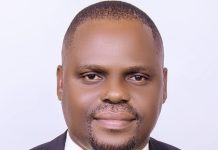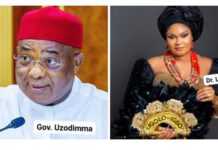
By; Kissinger Ikeokwu, 08037732987
As the 2015 elections approaches the political battle in Imo State is fast becoming dominated legislators. This is understandable as even in the USA, most Presidents and Governors start as lawmakers before taking a shot at the executive offices. In Imo State however, many people have been using the credit of legislative experience as a disadvantage to the contenders. More worrisome is the fact that even those who are literate have joined the ignorant to pose irrelevant questions to our distinguished legislators, asking what they have done for the state to warrant their being elected to a higher office. In this context, the likes of Hon. Emeka Ihedioha, Hon Bethel Amadi, Hon Chris Anyanwu, Hon Samdaddy Anyanwu, Hon Simeon Iwunze all come to mind. It has become the practice that upon mentioning the name of a legislator as an aspirant to a bigger political office in 2015, the first thing you hear is “What has he done for his people?”. This is one sad reality of our present political environment. I must state hear that whilst caring for the welfare of citizens by a lawmaker is commendable, it is not a condition or qualification for one to run for political office. The constitution made it that someone who may not have had resources to grant scholarships in the past can run for elective position. There is no where in the constitution where it was stated as a condition that one must have delivered free keke, Okada, healthcare or scholarship before he or she would qualify for an elective office he aspires to. The worst is how many now rate their legislators. Even the enlightened amongst us does not know how to rate a legislator. Often times we rate the performance of a legislator by how many Okada, Keke, car, cheque he or she has shared to his constituents. In other cases, people who are not constituents of a legislator have even joined the fray asking what a legislator who only represented his constituency has done for their own area which is not part of the constituency represented by the peculiar legislator. This is a misnomer, because a legislator was given mandate to represent his constituency. It is the constituency of such legislator that has the right to call him to account for his representation and not someone outside his constituency, who did not submit any mandate to him. In rating the performance of a legislator who is now seeking a bigger office, regard must be given to his constituents. It is an enquiry from his constituents concerning his performance that makes sense, than a blanket judgement asking “what has he done since the past years he is in the parliament?” In measuring the performance of a legislator regards must also be given to the previous persons who represented the area. This is because the people most likely voted for a change in the status quo ante as it were. A legislator does not need to be perfect. All he needs is to score distinctively and above average. PERIMETER FOR MEASURING A LEGISLATOR The primary job of a legislator is not to construct road, Hospital, school etc. The job of a legislator is not to create employment, create empowerment, grant scholarships, share Okada, Keke, sewing machines etc. The primary job of a legislator is to make laws. Thus a legislator who shares all his allowances to his constituents but fails to participate in the lawmaking business of the parliament is a gross failure. Therefore the rating of legislators must start with their primary functions of lawmaking and not how he contributed to the welfare of his constituents. In assessing the performance of a legislator, we can use the following guide; 1. LAWMAKING: i. How many bills did the legislator sponsor? ii. How many bills did he co-sponsor? iii. How many bills did he contribute to its making? iv. How many motions did he sponsor or co-sponsor? 2. IMPACT: i. How has he lobbied to push the interest of his constituency at the parliament? ii. How did he or she bring the issue of his constituency to the fore at the parliament? iii. How accessible is the legislator to his constituents? iv. How much did he consult to get the interest of his constituents on serious matters affecting their interest? v. How many times has he canvassed issues of his constituency vigorously at the parliament? vi. How much does the parliament rely on his expertice in committees and special enquiries and investigation? vii. How relevant has his expertice positioned him to make him indispensable to the business of the parliament. viii. How vocal and visible is he on issues of serous importance? 3. AGENDA SETTING/APPROPRIATION: i. What efforts did he make to ensure that specific areas of need of his constituents are identified and appropriated for in the annual budget? ii. What efforts did he make to ensure his constituency is captured in the budget in the various appropriation years? iii. How does he fight to ensure that enough funds are appropriated for projects in his constituency? 4. SOCIAL REPONSIBILTY/OVERSIGHTS i. How has he responded to the needs of his constituents? ii. How open and accessible has he been to his constituents who gave him the mandate? iii. How much has he responded to efforts to help secure jobs, contracts etc to his constituents? iv. How much he has fought to attract projects to his area? v. How many welfare packages he has given to his constituents? It is clear from the foregoing that we have been taking the last to be first especially in Imo today. If the rating for a legislator who wants to be Governor be on the four above, then no lawmaker would qualify to be Governor. A lawmaker who does well in 1, 2 and 3 above already has 75% marks being that he has performed in the primary business for which he was elected. Doing well in 4 and failing in 1, 2 and 3 as in the case of Honourable Mathew Omegara, representing Okigwe Federal Constituency, he cannot score a pass with even 4 above. It is good that we understand that the major task of a legislator is to ensure that his constituency is captured in the appropriation. Once a legislator can or is able to fight for the right of his constituents by ensuring that their peculiar needs are identified and appropriated for in the larger political equation, such legislator would have justified his mandate at the parliament. The appropriation experience places people who are former lawmakers in a better footing to do well in the executive office, because they would hit the ground running from Day. Those who come into executive office without legislative experience learn while on the job and this hampers the effective running of government as some precious time are missing which would have been more productive and beneficial in the business of governance. If Ohakim and Okorocha can achieve milestones without having previous appropriation experience, a legislator who not only have learnt but participated in the business of appropriation would do much better. Conversely, a former legislator who has played active role previously in appropriation at a lower parliament, is much more likely to achieve and attract more to his constituency than a greenhorn who would learn on the job and by then his constituency would have been robbed of the scarce democracy dividend. Honourable Emeka Ihedioha represented Aboh Mbaise/Ngor Okpala Federal Constituency, but people from my own Okigwe North Federal Constituency are attesting to the fact that the choice of him by the Aboh Mbaise/Ngor Okpala Federal Constituency has benefited his constituency and the benefit has spread even beyond his constituency. What else can we demand from a team of legislators who not only fought but ensured the commencement of work for the dualization of the Owerri-Elele Expressway dualization, Owerri-Umuikaa Junction Expressway dualization, rehabilitation of the Owerri-Okigwe dualization and many more other federal roads spread across the state. Imo has never had it better from our federal legislators and I want to say kudos to Honourable Emeka Ihedioha, Deputy Speaker, House of Representatives, who has maximized his office as the No. 6 citizen in the country to ensure that these federal projects were not only awarded and appropriated, but policing them to ensure timely release of the funds to the contractors for effective delivery of the projects.










